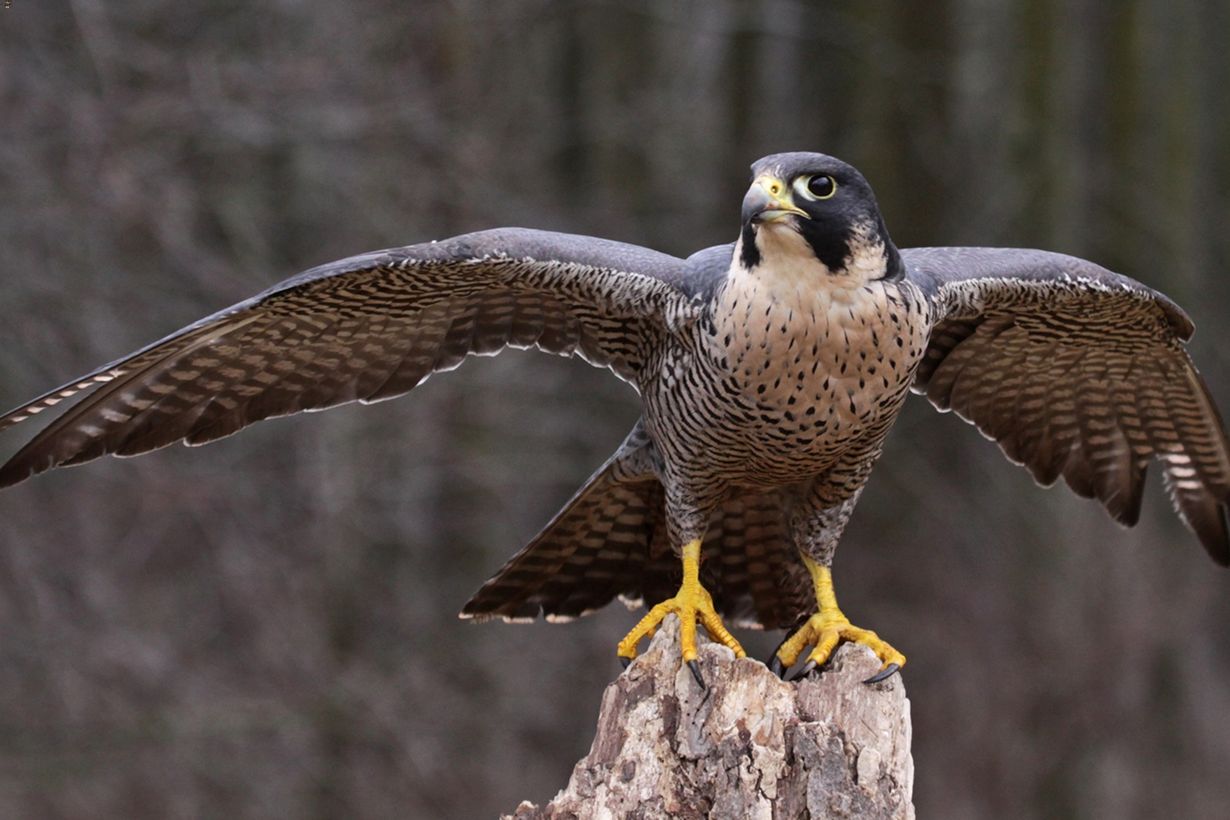
Falcons are among the most fascinating birds of prey, known for their incredible speed and hunting prowess. But what makes these raptors so special? Falcons are not just fast; they are the fastest animals on the planet, capable of diving at speeds over 240 miles per hour. These birds have keen eyesight, allowing them to spot prey from great distances. They also exhibit unique behaviors and adaptations that make them exceptional hunters. From their sharp talons to their aerodynamic bodies, falcons are built for speed and precision. Ready to learn more? Here are 30 amazing facts about these incredible birds.
Falcons: Masters of the Sky
Falcons are among the most fascinating birds of prey. Known for their incredible speed and hunting prowess, these birds have captivated human imagination for centuries. Let's dive into some amazing facts about these aerial acrobats.
- Falcons belong to the Falconidae family, which includes around 40 species.
- The peregrine falcon is the fastest bird, reaching speeds of over 240 mph during a dive.
- Falcons have a unique notched beak, designed to kill prey by severing the spinal cord.
- Unlike other birds of prey, falcons kill with their beaks rather than their talons.
- Falcons have exceptional eyesight, allowing them to spot prey from over a mile away.
- These birds can see ultraviolet light, which helps them track prey and navigate.
- Falcons are found on every continent except Antarctica.
- They prefer open habitats like grasslands, deserts, and tundra but can adapt to urban environments.
- Falcons are known for their incredible agility and can change direction mid-flight with ease.
- The peregrine falcon's name comes from the Latin word "peregrinus," meaning wanderer, reflecting its migratory nature.
Falcon Hunting Techniques
Falcons are skilled hunters, employing various techniques to catch their prey. Their hunting strategies are a marvel of nature.
- Falcons often hunt by soaring high and then diving at incredible speeds to catch prey.
- They use a technique called "stooping," where they fold their wings and dive steeply.
- Falcons can strike prey mid-air, showcasing their agility and precision.
- They often hunt birds but can also catch small mammals, insects, and even fish.
- Falcons use their sharp talons to grasp prey and their beaks to deliver a fatal bite.
- Some species, like the kestrel, hover in place while searching for prey on the ground.
- Falcons have been known to hunt cooperatively, with one bird flushing out prey for another to catch.
- They can adapt their hunting techniques based on the environment and available prey.
Falcon Reproduction and Lifespan
Understanding the reproductive habits and lifespan of falcons provides insight into their survival and adaptation strategies.
- Falcons typically mate for life, forming strong pair bonds.
- They often return to the same nesting site year after year.
- Falcons lay between 2 to 5 eggs per clutch, depending on the species.
- Incubation lasts about 28 to 35 days, with both parents sharing the responsibility.
- Chicks, known as eyases, are born with white down feathers and are completely dependent on their parents.
- Young falcons fledge, or leave the nest, at around 5 to 6 weeks old.
- Falcons reach sexual maturity at about one year of age.
- In the wild, falcons can live up to 15 years, though some have been known to live longer in captivity.
Conservation and Human Interaction
Falcons have had a significant relationship with humans, from falconry to conservation efforts.
- Falconry, the art of training falcons to hunt, dates back over 4,000 years.
- Falcons have been used in pest control, particularly in airports, to scare away other birds.
- Many falcon species faced population declines due to pesticide use, particularly DDT, in the mid-20th century.
- Conservation efforts, including banning harmful pesticides and breeding programs, have helped many falcon populations recover.
Falcons continue to inspire awe and admiration with their incredible abilities and resilience. Their story is a testament to the wonders of the natural world.
Final Thoughts on Falcons
Falcons are truly fascinating creatures. From their incredible speed to their unique hunting techniques, these birds of prey have captured human imagination for centuries. They play a crucial role in maintaining the balance of ecosystems by controlling the population of smaller animals. Falcons also have a rich history in human culture, especially in falconry, where they’ve been trained for hunting for thousands of years. Their keen eyesight and remarkable agility make them exceptional hunters. Understanding these facts about falcons not only deepens our appreciation for them but also highlights the importance of conserving their habitats. Next time you spot a falcon soaring through the sky, remember the incredible abilities and rich history behind these magnificent birds. Whether you're a bird enthusiast or just curious, there's always something new to learn about these amazing raptors.
Was this page helpful?
Our commitment to delivering trustworthy and engaging content is at the heart of what we do. Each fact on our site is contributed by real users like you, bringing a wealth of diverse insights and information. To ensure the highest standards of accuracy and reliability, our dedicated editors meticulously review each submission. This process guarantees that the facts we share are not only fascinating but also credible. Trust in our commitment to quality and authenticity as you explore and learn with us.
